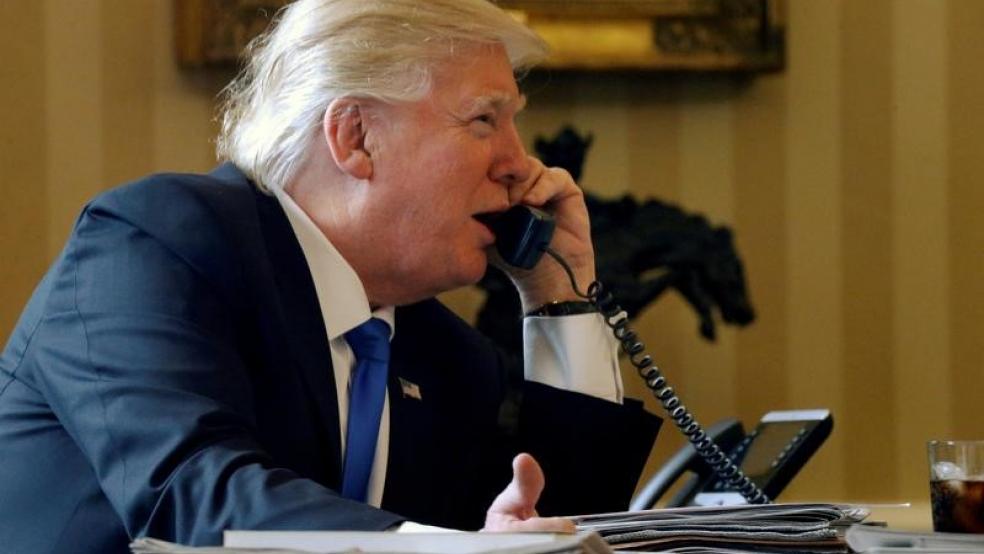In his career as a businessman, the overwhelming body of evidence is that Donald Trump was an inveterate rule breaker. Ask the contractors who were never paid, the trail of former partners who have sued him and the investors unfortunate or improvident enough to invest in his short-lived publicly traded company. But in most of those cases, Trump managed to escape paying a penalty because he understood the rules of the game. He didn’t respect them, but he understood them.
Now that he’s president, Trump is reverting to form. He’s trying to break the rules of presidential politics. This may indeed be why so many of his supporters voted for him and continue to back him. But the problem is that in D.C., Trump doesn’t really understand the rules well enough to pull it off.
Related: The Trump-Russia Investigation Could Clog Up DC for Years
On Friday, in just the latest in a series of bombshell news reports, The New York Times learned that during an Oval Office meeting with the Russian ambassador and the Russian foreign minister, Trump essentially admitted that he had fired Federal Bureau of Investigation Director James Comey the day before in order to quash an ongoing investigation into his campaign’s alleged collusion with Russia during the 2016 presidential election.
“I just fired the head of the F.B.I. He was crazy, a real nut job,” Mr. Trump said, according to a record of the conversation kept by the White House and shared with the newspaper. “I faced great pressure because of Russia. That’s taken off.”
“I’m not under investigation,” he added.
Judging by Trump’s statements in the Oval Office and by his previous admission to NBC’s Lester Holt that he fired Comey because of the Russian investigation, Trump appears to have genuinely believed that by removing Mr. Comey from the equation, he could effectively end the investigation. He also reportedly thought that Democrats would back his move. But that’s not how it works in Washington.
On Friday, as Trump was in the air on his way to Saudi Arabia for the first leg of his first foreign trip as president, another major scoop from The Washington Post demonstrated just how wrong he had been.
Citing unidentified people familiar with the investigation, the Post reported Friday afternoon that the FBI investigation has already begun reaching into the highest levels of the White House, with a close adviser to the president now identified as a person of interest in the case.
Related: Will Trump Be Impeached? Online Bets Assess the Odds
Until now, much of the focus of speculation has been on people who were forced out of Trump’s orbit months ago, like retired Army General Michael Flynn, who was forced to resign as National Security Adviser over his contacts with Russian officials, former Trump Campaign manager Paul Manafort, and former adviser Carter Page.
The revelation that the investigation is already looking at people close to the president suggests that its level of intensity has risen dramatically.
The White House tried to push back against the Times story in particular, spinning Trump’s remarks as being solely about U.S.-Russia relations.
“The President has always emphasized the importance of making deals with Russia as it relates to Syria, Ukraine, defeating ISIS and other key issues for the benefit and safety of the American people," White House Press Secretary Sean Spicer said in a statement. “By grandstanding and politicizing the investigation into Russia's actions, James Comey created unnecessary pressure on our ability to engage and negotiate with Russia.”
He added, “The investigation would have always continued, and obviously, the termination of Comey would not have ended it. Once again, the real story is that our national security has been undermined by the leaking of private and highly classified conversations.”
Related: Economic Uncertainty Is Reaching Crisis Levels Under Trump
But in his repeated public denunciations of the investigation as a “witch hunt” and his evident anger at the news that the Justice Department had appointed former FBI Director Robert Mueller as special counsel charged with leading the investigation, Trump did not complain that the process was affecting his foreign policy negotiations.
Of course, this is only the White House’s first explanation for why Trump said what he did to the Russians. If we’ve learned anything over the past week it that there will likely be two or three more before we’re done.





